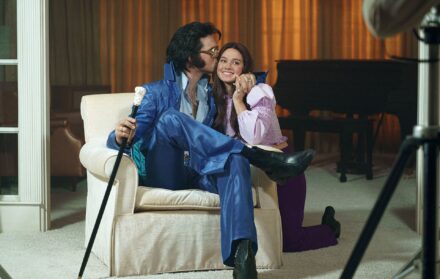
The rise of the biopic: Is the Hollywood-favourite genre killing the art of storytelling?
Hollywood loves a trend – but is the never-ending churn of biopics becoming excessive?
We’re only four months into 2024 and four major biopics have already hit our screens. Bob Marley: One Love came first in February, focusing on the life of the famous reggae singer. Then it was Shirley – a documentation of the life of the first-ever Black congresswoman. Netflix’s Scoop reenacts that Prince Andrew interview and, finally, one of the most highly-anticipated releases this year, Sam Taylor-Johnson’s Amy Winehouse biopic, Back to Black, lands this week.
Thought that was a lot? Strap yourself in. 2023 was a biopic rollercoaster, clocking in 17 movies ranging from the Oscar-winning Oppenheimer to Ridley Scott’s Napoleon and Sofia Coppola’s Priscilla – all appendages of the money-spinning trend which originally found its feet in the 2010s (think The Theory of Everything and A Star Is Born). The world of cinema can be fickle, but not when it comes to the biopic; not only does the genre never go out of style, but it also creates a marketing circuit which means even the most cinema-avoidant have heard of these films, as promotional posters are plastered on every bus, tube and social media platform.
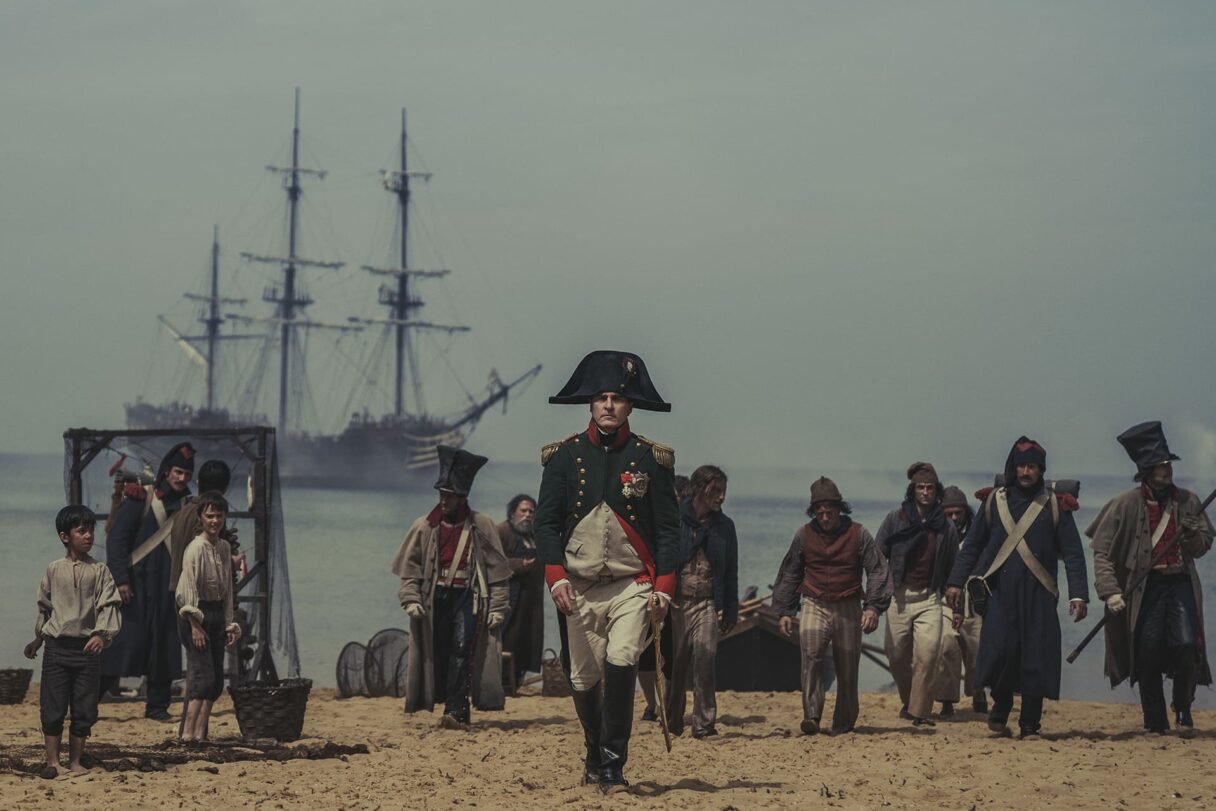
The trend is nothing new, however. A biopic, by definition, is “a film dramatising the life of a particular person, typically a public or historical figure”, which has been around for decades – just not, perhaps, in the quantities seen in recent years. “One of the earliest and most influential biopics is The Passion of Joan of Arc (1928), directed by Carl Theodor Dreyer, which depicted the trial of Joan of Arc and is still celebrated for its innovative approach and emotional depth,” says Adam Brannon, founder and editor of award-winning film blog, Movie Metropolis. “However, the trend of biopics as a staple in cinema really took off in the 1930s and 1940s, often referred to as the Golden Age of Hollywood. During this time, biopics that focused on historical figures, musicians, and artists started to become more prevalent.”
Fast forward to the 1990s, and things started to change. “[It came] with films like Ray and Walk The Line which showed that, for the first time, major A-listers could be persuaded to take on playing the roles of major stars such as Ray Charles and Johnny Cash,” adds film journalist and critic, Rob Crossan. “Lavish budgets became available and the thinking in the industry seemed to pivot; suddenly we, the audience, were told that these were ‘legendary’ people whose life stories deserved our time and attention in front of the big screen.”
What followed was a big-spend resurrection in the 2000s and 2010s as heavy-hitter directors leaned into a trend that consistently garnered notable rewards – not only at the box office, but also during awards season. 2014’s The Theory of Everything featured Eddie Redmayne’s Oscar-winning portrayal of famed physicist Stephen Hawking and grossed $123 million at the box office, against a $15 million production budget. It paved the way for Rocketman, where Taron Egerton starred as Elton John, Bohemian Rhapsody, which saw Rami Malek portray Freddie Mercury, and Bradley Cooper’s directorial debut in A Star Is Born (the soundtrack for this film is one of the world’s best-selling albums of all time).

Bradley Cooper and Lady Gaga in A Star Is Born (2018)
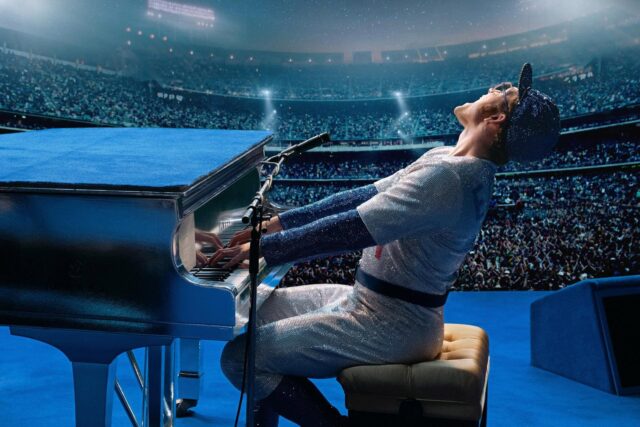
Taron Egerton as Elton John in Rocketman (2019)
The biopic is a well-oiled cinematic machine. But, while all trends are cyclical, is its modern-day resurgence becoming excessive? Do we need quite so many historical biographies hitting our screens every year? And is the art of cinema – from casting talent to storytelling – being lost in a cloud of biopic marketing and money?
“I generally don’t like biopic movies for the simple reason they are often overly reverential, not prepared to take risks, and act as a Trojan horse for an Oscar award for one lead actor. Rarely does an ensemble cast fire on all fronts in a biopic,” says Crossan. “While the current trend for focusing on just one period of a star’s life – such as the new Bob Marley film – is an improvement on the ‘entire life in two hours’ efforts of yesteryear, the choice of era is very rarely the most interesting one, but rather the one that bathes the star in the most lambent light.
“For example, the Austin Butler Elvis film is fantastic when it comes to the early rock and roll days and the 1968 Comeback Special. But the fact that there is next to nothing in the last sad, five years of his life renders the whole film lop-sided and makes any Elvis fan question why there seems to be such a lack of courage in depicting the more tragic elements of a story.”
It is this element of storytelling that seems to become further and further removed with every release. Coppola’s Priscilla, which was slated to tell the unseen story of the King of Rock and Roll and his wife’s tumultuous relationship (something that was not even acknowledged in Baz Luhrmann’s 159-minute film), fell foul of critics for weak screenplay and lacking gumption. While Oppenheimer became the highest-grossing biopic of all time with a global box office – followed by Bohemian Rhapsody and American Sniper – it was criticised by many for being an hour too long. Given that the premise of the biopic is rather simple – retelling of events that have already happened – would it be fair to label the genre as lazy when it comes to storytelling?
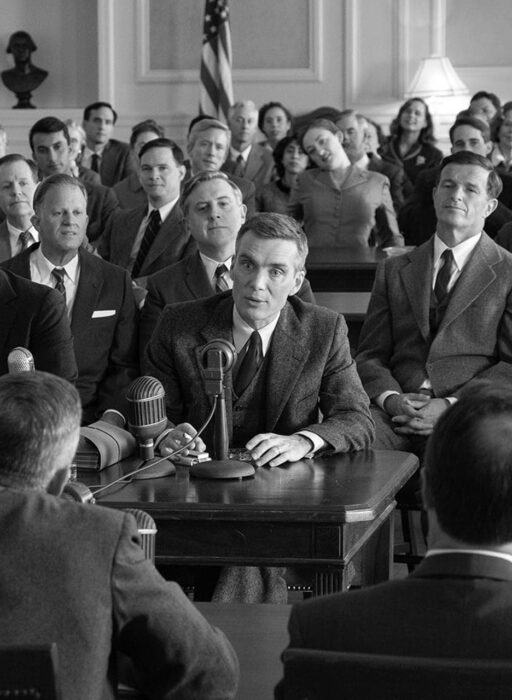
Cillian Murphy as J. Robert Oppenheimer. Image: Universal Pictures
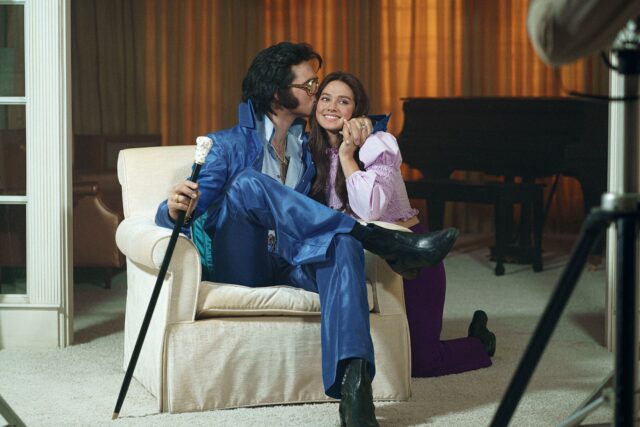
Jacob Elordi as Elvis and Cailee Spaeny as Priscilla in Sofia Coppola's Priscilla (2023)
“Labelling the genre as ‘lazy’ might not fully capture the complexities and creative challenges involved in bringing real-life stories to the screen,” explains Brannon. “Biopics require filmmakers to engage deeply with the life and context of the subject, often involving extensive research and a nuanced understanding of the individual's contributions, struggles, and the times they lived in. Crafting a narrative that respects the truth while engaging an audience's emotions and intellect is a sophisticated storytelling feat.”
However, Crossan believes that, while ‘lazy’ might be a shade too far, the genre is definitely convenient. “The big-budget biopic is a relatively new phenomenon and is still finding its feet, but the tendency of directors to cower under the lights of the chosen star’s legacy is getting tiresome. I’d love to see a director tackle a biopic where he or she openly admits to not being a particular fan of the star in question whose life story is being partially or wholly told. Novelists and biographers regularly tackle people they find distasteful or negative. I’d like to see directors do the same.”
Also concerning is how quickly directors lunge at the chance to retell a story that’s barely played out. Last weekend, the UK press published images of a grim-looking Prince Andrew, apparently unhappy with Netflix’s account of his car-crash 2019 interview in Scoop, while Crossan makes the point that “barely a decade on from [Amy Winehouse’s] death isn’t the right time to make [Back to Black]”. He adds: “Dust needs to settle on a real life story which is still, in some ways, being played out in public with the continued travails of Blake Fielder Civil and Mitch Winehouse.”

The big question is, will we ever tire of the biopic? “Audiences are often fascinated by the lives of notable figures [and] this interest suggests that, despite the challenges and the current abundance of biopics, the genre will continue to thrive because the fan base already exists,” explains Brannon. “However, the saturation of the market could lead to a higher standard for what constitutes a compelling biopic, pushing filmmakers to innovate in their storytelling techniques and choice of subjects.”
“The trend is limited as to the number of stars who are believed by Hollywood bean counters to be deserving of the biopic treatment and are likely to put enough bums on seats,” says Crossan. “That number is finite, but I think we could see the biopic format migrate back to the small screen again, with lessons learnt from the ‘Hollywood Years’ as to how to tackle these stories in ways that aren’t necessarily linear or didactic.”
Read more: Stanley Tucci: The Great Entertainer





